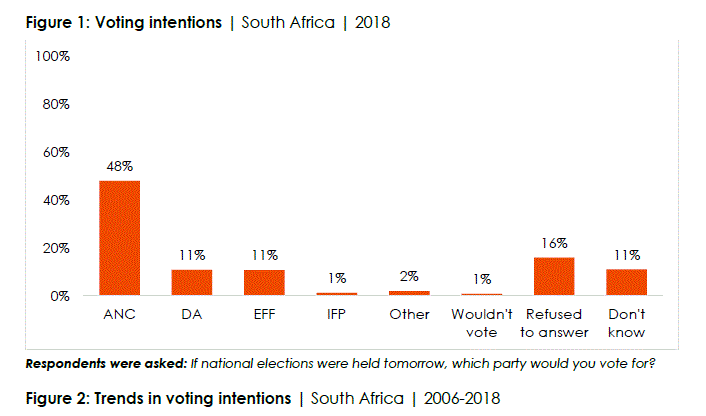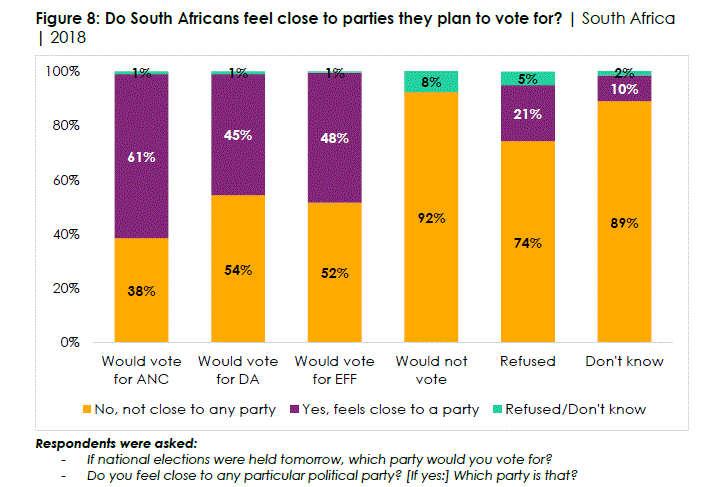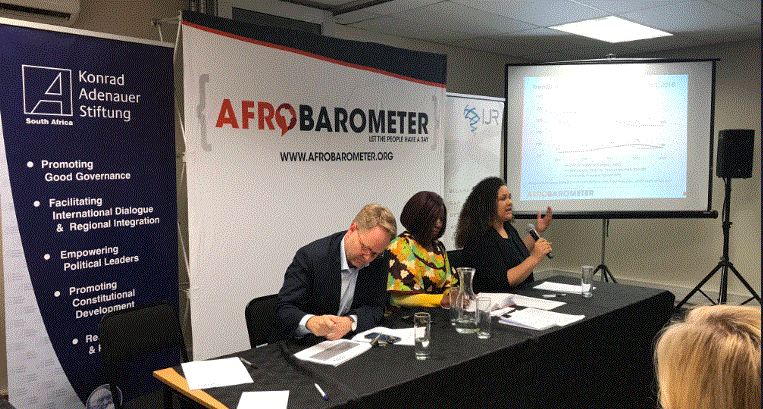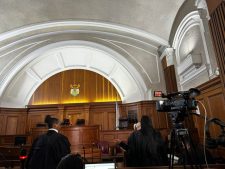South Africa is getting ready for its fifth general election, expected to be held by August 2019. Over the coming months, political parties will be campaigning for national and provincial leadership.
The African National Congress (ANC) may remain the ruling party after next year’s general elections. This is according to the latest Afrobarometer survey conducted between August and September.
It shows that the ANC currently enjoys 48% of electorate support, while the DA and EFF enjoy 11% each.
Results of the survey by the Institute for Justice and Reconciliation were released in Cape Town on Tuesday.

The ANC’s projected support is at least seven per cent down from data collected in 2011. All three top parties are expected to be competitive in Gauteng, while the DA is leading the Western Cape with 31%.
UCT Researcher, Jamy Felton explains, “What we found is that if South Africans were to go on elections tomorrow the majority of South Africans 48% of South Africans said they would vote for the ANC while the 11% said they would vote for the DA and eleven per cent for the EFF.”
More than one-fourth (27%) of citizens don’t know or won’t say how they would vote, or wouldn’t vote.
Afrobarometer is a research network that conducts public attitude surveys in several African countries to strengthen democracy and economic growth. Project Manager for Africa, Anyway Chingwete says their results are reliable.
“In the network, we have conducted surveys for South Africa since 1999, Afrobarometer survey are highly reliable and we have strict methodology and protocols for data collection, the sample is highly.”

Meanwhile trust for the Independent Electoral Commission has also decreased.
IEC’s Derrick Marco says: “I think it’s a reasonable perception for a number of reasons. One, there’s a major contestation within parties and across party lines and so the institution that holds the democracy together around the elections is the electoral commission and that could by necessity give indication about the level of trust.”
About 1800 people were sampled from all provinces — representing all demographics from both rural and urban centres.
Read the full study below: Increasingly non partisan, South Africans willing to trade elections for security, housing, jobs from SABC News






